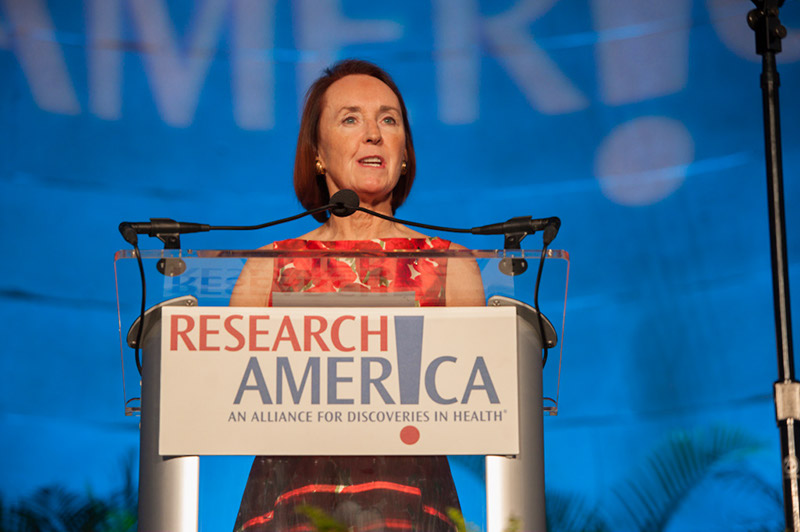Thanks and a Thanksgiving Challenge

 Dear Research Advocate:
Dear Research Advocate:
Yesterday, along with 85 partner organizations (more than ever before!), we celebrated Public Health Thank You Day. Hundreds of people took to social media with the hashtag #PHTYD to celebrate and thank the public health heroes who work 24/7 to maximize community health and safety. Overall, PHTYD garnered 10.1 million impressions on Twitter. Leaders in the field, including CDC Director Brenda Fitzgerald, NIH Director Francis Collins, Surgeon General Jerome Adams, APHA Executive Director Georges Benjamin, and World Bank President Jim Kim added their voices to the overwhelming chorus of appreciation.
Late last week, news broke of promising discussions in both Congressional chambers for a potential deal to #RaiseTheCaps. The deal is reported to raise the defense budget cap by $54 billion and the non-defense cap by $37 billion each year for the next two. This is by no means a sure thing, but leadership is throwing its weight behind reaching a deal and completing FY18 appropriations before the end of the year.
As Congressional Leaders and the White House considered whether to ink a budget deal, we worked in partnership with 10 other science organizations to shine a spotlight on science as a strategic imperative dangerously shortchanged by the current budget caps. You’ve heard me assert this before: if we want to ensure R&D is accorded the priority it merits, we need to walk that talk when major policy decisions are in the offing. If you missed the extensive digital messages and the full-page ad we placed widely, including in the WSJ, check it out now, and add your voice. We’re not across the finish line yet.
During last week’s Research!America alliance members meeting, we heard from Holland & Knight tax experts Robert Bradner, Kathleen Nilles, and Nicole Elliott about the impacts – good and bad – of pending tax reform. Here are the slides for those who were not able to tune in. On the “bad” side of the ledger are a number of tax changes that would hurt graduate students and higher education itself. We signed on to a letter spearheaded by AAAS that makes the case against these and other concerning provisions of the House and Senate bills. Where the path leads from here is uncertain. We will continue to monitor this space closely and keep you in the loop.
Budget and tax challenges were part of the framing for a conference on university-government-industry collaboration at the National Academy of Sciences (NAS) last week. From an advocacy perspective, these partnerships signify economies of scale, a determination to capitalize on individual strengths rather than duplicating effort, and the power of synergy to produce a whole greater than the sum of its parts. The more all of us can do to raise awareness about the significance of public/private partnerships to fast-paced progress, the better.
There have been several requests for the provenance of a quote I cited during the conference that holds particular relevance in regard to the budget caps, but certainly holds equally true when it comes to forging new partnerships: “A talent for following the ways of yesterday is not sufficient to improve the world of tomorrow.” – King Wuling of the Kingdom of Zhao in northeastern China, (circa 307 BC).
Do you feel comfortable conveying the how and why of science in a way that resonates with non-scientists? As discussed at the NAS Arthur M. Sackler Colloquia, The Science of Science Communication, attendees shared various approaches to effective communication, such as utilizing visuals, technology, and even food to convey the importance and creativity of research. Program chair and Research!America board member, Dr. Alan Leshner, put it best: “know before whom you stand.”
A heartfelt Happy Thanksgiving to all. Here’s the challenge: regardless of your role in the R&D ecosystem, cultivate a research advocate. In what ways does your work align with their values and goals? Do you believe that your work serves the greater good? Then let that would-be advocate know that you work for them! Change the conversation and you will begin to change the culture to one in which a top priority rank for science is a given, not a goal.
Sincerely,
Mary Woolley




